Franz Tabone landed his pivotal role after he was elected as a council member on behalf of the District Leagues, which gave him the chance to see the game from another perspective after a lifetime of active football. He explains:
“One fine day, in mid-2011, my friend and team-mate, President Norman Darmanin Demajo (photo below) spoke to me about the role of Integrity Officer that UEFA was initiating, following match-fixing scandals across the globe. When I asked him to tell me what the role entailed, he could not give me a straight answer because it was a brand new position for which not even UEFA had an immediate job description – which was established eventually.
UEFA needed someone to occupy a sensitive position and do everything possible to educate, investigate and collaborate with disciplinary bodies and law-enforcers, whilst also collaborating with the media and the public in general. All this was specifically aimed at fighting the match-fixing scams that were creeping into football at an alarming pace.
My previous experience in hospitality general management, as well as in human resources management, gave me a sound base for entering a new field that basically required careful and sensible handling, plus strong man-management skills. Due to my undiluted love of football, I accepted the role and since then I can say that I am involved 24/7.
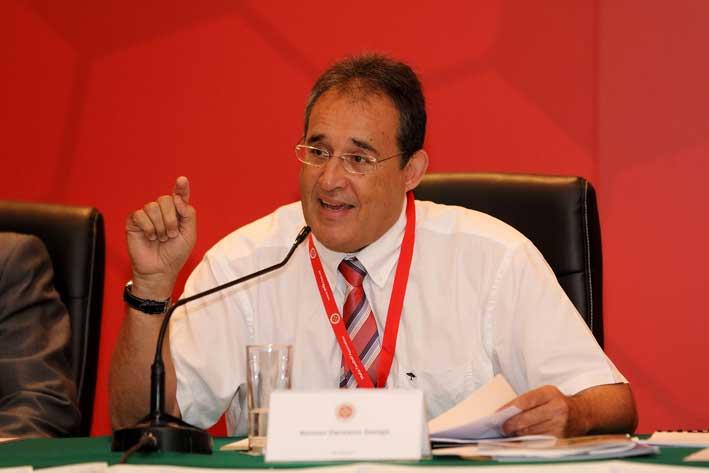
When I attended the launching seminar for Integrity Officers from across Europe, held at UEFA’s headquarters in Nyon, Switzerland, none of us there really knew the fine details of our role which, as mentioned above, was soon made clear. What all of us did know at that seminar was that we had entered a very sensitive area – one that had to be handled with extreme caution – and help in the battle against match-fixing. That was very clear to us. The Integrity Officers’ network across Europe was on the road and would serve us well in the future.
“While all this was still in its early stage – about the time that I was appointed – the scandal of the infamous Norway v Malta match surfaced. Suddenly, I realised that I was in the thick of it all. The MFA received an email from a newspaper journalist who had read about the cases being heard by the Bochum Courts in Germany where the Maltese national team could have been involved in a match-fixing scandal. That email, as expected, landed on my desk, resulting in a very tough baptism of fire.
“Looking back, it did provide me with a wide learning platform that exposed my role to the full and offered me many opportunities to learn the subject. Months of thorough investigations locally then led to UEFA take over the case as it was about match in one of its competitions. Following that, sensitive meetings were held away from our shores which gave me further exposure to important information and people who were experienced in dealing with such things. The disciplinary hearings in Nyon were followed by appeals and finally ended up in front of the Court of Arbitration for Sport in Lausanne. The numerous individuals who crossed my path during those 18 months of the case were to be very important later on. The rest, as they say, is history.
“Five-and-a-half years on I can proudly say that I am now one of the leading integrity officers in Europe and I can speak with expertise on the subject. I continuously offer my assistance but obviously some of my suggestions need time to be implemented and, most importantly, for their effectiveness to be understood.”
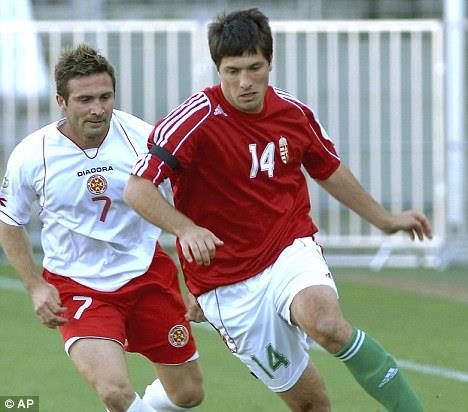
The infamous Norway v Malta FIFA World Cup qualifier played in Oslo in 2007 which Malta lost 4-0 – with three goals being scored in the last 17 minutes – was again the topic of our discussion.
“When I took this role, I was not about to tackle a subject that nobody knew about. It was an open secret that matches in our country were negatively branded. Talk of corruption and game-fixing in our football was common and most people knew what was going on in football here, with match-fixing and bribes, etc. When I say ‘match-fixing’, this means for whatever purpose – be it for sporting reasons or for betting purposes. But for over a century nobody spoke out about it. Maybe people had different attitudes then, so when I spoke openly about it all it caused a bit of a surprise, but my only intention was for everyone to join in the crusade.
I believe that when there is a problem, the best way of dealing with it is to speak up and others will understand. I do not think that I was talking about anything new – I was basically repeating what was being said in the stadiums, clubs, cafés, village squares and everywhere else. With that infamous match against Norway, we realised that – apart from match-fixing from the sport angle, we were also part of the somewhat recent phenomenon of match-fixing for betting purposes.
In other words, we were shocked into reality in no time at all and we had to react the best way we could. When this scandal surfaced in the local media in 2011 it was a shock for Maltese football and all I had to work on was just an email. Everyone knows what the final outcome was and I do not want to go into the details. I am here to talk about my actual role in this whole scam, which is really crippling football globally.

“The situation is that, although we know a lot on the subject and have our well-founded suspicions, it has to be a concerted effort if we are to stand a chance. As such, Franz Tabone cannot wave his magic wand and sort everything out. And perhaps some of our critics can help as well. They should reflect on this. However, it all boils down to the people responsible, the actors on the pitch: the footballers, the officials and the coaches on the sidelines. These are the potential elements for a match to be manipulated. But we still believe that before that we are more inclined to take the educational path. Today I (and the MFA) have taken a different position because to stop the scam on the field of play is very difficult. We have the intelligence about what is going on, and in most cases we have a good feel of what is happening on the pitch. Some might ask why the Association is not doing more and unfairly criticise it. I can assure you that the MFA is doing much more than any other association in Europe. Our various collaborations have helped us in no small way to educate the players, the match officials and the clubs and to help them in difficult situations.”
The next big question was whether he really feels menaced in his role since his appointment in such a delicate situation.
“Yes, I always feel menaced. I’m not talking about football here, but organised crime. I do the job because I love the game and now feel I have a huge responsibility – otherwise I would never even dream of doing it. Some friends tell me that I’m risking a bit too much doing this job. I still remember an incident where I was going to be assaulted physically but I stood my ground and today all these people know what my position is and at this stage I am not going to change my approach. We have now reached a stage unheard of before, we’ve created all this awareness about match-fixing, and I have no intention of stopping but only of moving forward with stronger intent.”
We asked Franz if the nucleus of people involved in match-fixing locally is being controlled. With a grin, his answer was quite straightforward: “Our suspicions are there and they’re very strong. As you know, criminality – and we’re talking huge money here – is very strong. These people do not have respect for anyone, will stop at nothing and will be able to achieve anything. I want to emphasise to those who still think match-fixing is directly linked to the game of football, that we’re talking about outright criminality in the same league as drug-trafficking, smuggling, human-trafficking and other serious criminal activities. It’s a very handy medium for money-laundering.
“The only difference to other crimes is that it is easier to execute as there is nothing tangible in the process. There is no package or visible transaction. You can’t really prove that a player or referee has deliberately made a mistake. They are human beings and not machines, regardless of the fact that certain actions might be deemed dubious. But it is big. Criminals are strong and it’s very difficult to tackle them. This is why the local FA is doing so much on the educational aspect with up-and-coming footballers – showing them the consequences, should they fall into the trap. But, as always, money is a very interesting temptation.”
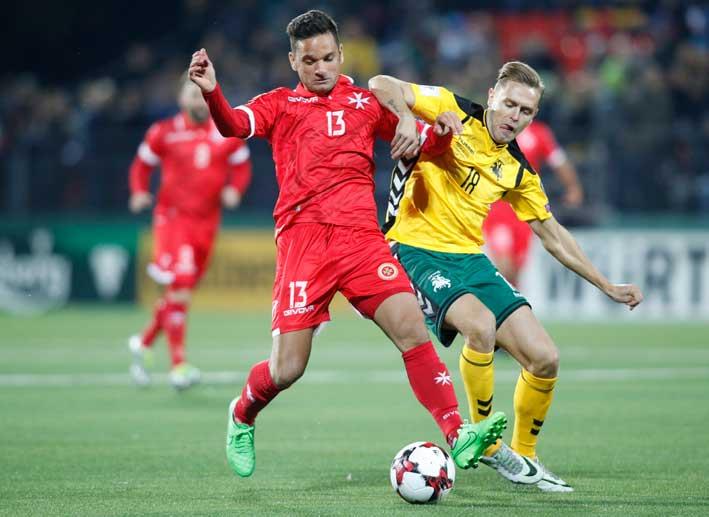
Another issue we discussed is the recent announcement by the MFA President that the Lithuania v Malta FIFA World Cup qualifier played last month could have been manipulated as well. “Again, I reiterate that money is always very important in life. Nobody is immune, and we’re talking about youngsters here. Some could well be living beyond their means, others want to establish themselves in their personal life, so they can easily be tempted to join the rest. Our concern about the Lithuania v Malta match arose when we received a notification that the FIFA commissioner in charge of the match had entered the dressing rooms of both teams and the referees saying that there were suspicious betting patterns around the match. But, as I always stress, ‘betting patterns’ are not enough to identify that there could have been deliberate actions and accusations about the match.”
So what really are these betting patterns, Franz? “These come from data-monitoring companies. When this betting sector begins to show abnormalities, suspicions are triggered. I should mention at this stage that there are various opinions as to whether or not the FIFA commissioner should enter the dressing rooms. This is debatable. Getting back to the Malta national teams, there are three big question-marks still hovering over them: the 2007 Norway v Malta match, following which one former Malta national team player was suspended by UEFA; the double-header of the Malta under-21 national team against Montenegro and the Czech Republic in which Malta lost both UEFA qualifying matches on home soil 1-0 and 7-0 earlier this year in March and now we have another question mark over the recent Lithuania v Malta World Cup qualifier last month.
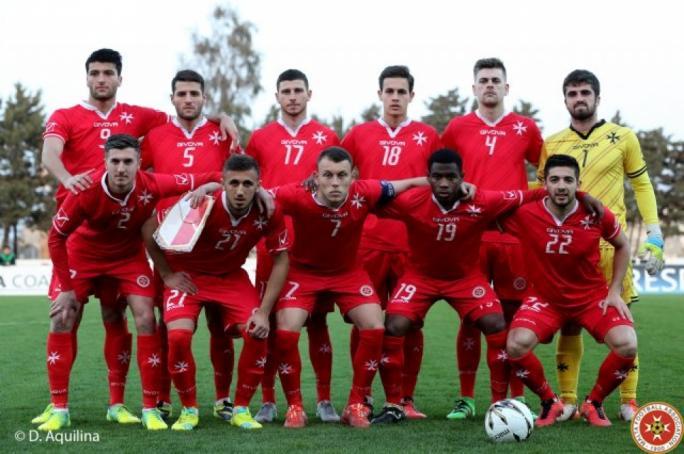
“Everyone knows the outcome of the Malta under-21 matches. Two Malta players were suspended by the Malta FA but subsequently were found not guilty by the local courts. However, now the police have lodged an appeal against the courts’ decision. That’s the legal aspect of the story. The sporting aspect is still very much ongoing. The MFA is awaiting the translation from Maltese to English of all the documents from the local courts. These will then be handed over in their entirety to UEFA for its investigation into these qualification matches. This will happen in the next few days and once the documents are to hand, UEFA will start their investigation.”
What’s the latest information about the Lithuania v Malta match played last month, I asked. “At present, FIFA are still very studying the information they have, before they begin their own investigations. As far as we are concerned, we assist in our own investigations which, again, may begin very soon. It has now become the norm to inform the Malta Police immediately we hear of any allegations – to avoid repeated investigations and also to avoid any surprises that might reach the police. Why? Because if something comes out of these “odd behaviour” cases, and I had not informed the Police about it, I would have failed in my job. My relationship with the Police here in Malta, as well as in some other countries, is stronger than ever and I feel very comfortable working and sharing information on a regular basis with them.”
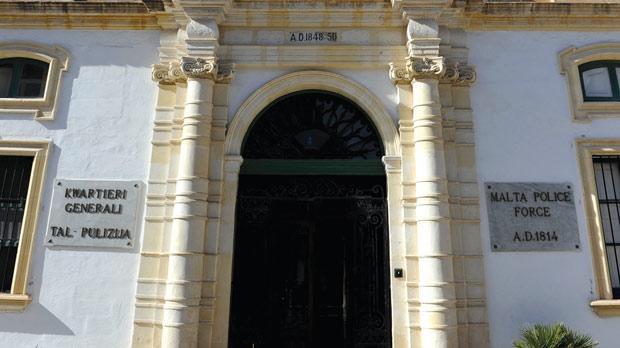
We asked Franz if he was pleased with the way things were moving within the Police Force. “Obviously, there has been a lot of improvement since I started but, as in everything else, there is room for further action. What I am hinting at is the use of various mechanisms and equipment that the police should consider seriously because it is a sure way of delving into the heart of the criminals’ activities. I fully understand the difficulties the Police face in certain circumstances and their priorities, not forgetting the resources available to them. I didn’t feel good about this to begin with, but now I have a better understanding of police work, I am fair about it but this still doesn’t reduce my frustration.
The investigative powers of the Police Force are stronger than mine. I don’t have the authority or the power to reach certain targets and objectives independently. But I research the subject and police actions in other countries and a common factor in successful police operations is the use of surveillance equipment. This is a delicate field – and one in which we cannot be involved, and it is the prerogative of the authorities to determine the way forward. It is a long process but – hopefully and finally – the situation will change and we hope that finally we will make inroads on the criminals.”
Today, Franz Tabone is a much respected person in both UEFA and FIFA circles, regularly attending meetings about match-fixing and corruption in the game of football. “When I attend meetings abroad, my sole aim is to learn as much as possible. I am there solely to learn and to continue learning in my line of work. I am there to gain information from others but on most occasions, I am happy to say, I contribute to the discussion with real-life experiences and practices which we have found to be beneficial in our work. It is not the first time that I have set the tone at these meetings and feel comfortable that I am very knowledgeable on the subject.

“The size of our island is both an advantage and a disadvantage: we get to know a lot, and a lot is also known about us. This may be dangerous. I know that I have gained a vast amount of knowledge, more than some others in this field, during these last six years that I’ve been Integrity Officer at the MFA.
“I operate in a very discreet and perilous situation. When the problems with Norway v Malta match surfaced we were pressed to mention the names of the players involved but never did because we are very discreet about the information which reaches us continuously. When the players’ names surfaced it was due to the work of the local media but it was not sourced through us.
“At the moment rumours are going on about certain football clubs here in Malta. For example: there are foreign ‘investors’ who come here promising cash to settle club debts and providing players for nothing. I am not impressed by all this but some people are gullible. These groups are not benefactors – they’re in it for gain! I often meet club officials who ask our advice on the subject, and I always say that they should be very careful before going into collaboration with these people. Unfortunately, and despite my advice, some of these officials make their own way and risk falling into a trap. I want to make it quite clear that I’m speaking generally and not about all clubs but just a few. There were cases when clubs took the risk and unavoidably took the wrong turning. Money blinds and is very tempting. When a club has big debts, panic sets in so they join forces with any entity that has no credible background. We are asked about implementing due diligence checks for these investors and others who might join the clubs. This may happen in the future, but it cannot be a guarantee against wrongdoing.

“So from where does the MFA get its match-fixing and betting alerts? Sportradar AG based in Switzerland is our main informative data supplier. There are 800 companies worldwide that rely on Sportradar’s data depth and quality.
“Yes, we get our alerts from Sportradar. It is an exercise in data monitoring, algorithms and scientific research that finally reaches a conclusion.
“So let me get back to these betting patterns which, to this day, I could never use against clubs for the simple reason that you cannot reach a conclusion as to who was the person/s who came up with the bribe.”
Recently, the Albanian champions KF Skenderbeu were investigated by UEFA after doubts about results in both the national league and European competition. UEFA said that the probe was based on information from betting companies, allegations from fans and the media. Eventually, the Albanian champions were found guilty and banned from all European competitions for the 2016-17 season. This was the next subject for Franz.
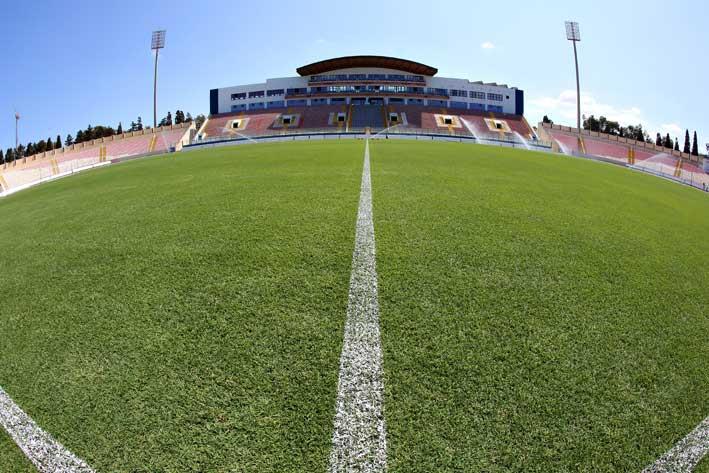
“A typical case was that of KF Skendebeu, who were suspended from all UEFA activities for 2016-17 as a result of the Betting Fraud Detection System reports. In such a scenario, this gives us an extra tool to work with. This is a milestone in match-fixing but I am still looking at the reasoning behind this final decision. Then I will be able to discuss it in detail.
“You still have to be cautious in these circumstances. Let me give you an example of how this works. Before the beginning of the season I sometimes have a clear indication and feel about what certain clubs will be up to during the season. Last season I had my suspicions about a local club which gave way to foreign investors ‘financing’ the club. So I met the club’s President, voiced my concern and gave him my advice on the subject. He made his decision and carried on. Over the span of eight to 10 weeks his club’s matches were deemed suspicious and he felt bad about the situation. His future changed.”
FIFA has its own system, the “Early Warning System” – that is being used and improved but at this stage I can’t talk much about it.
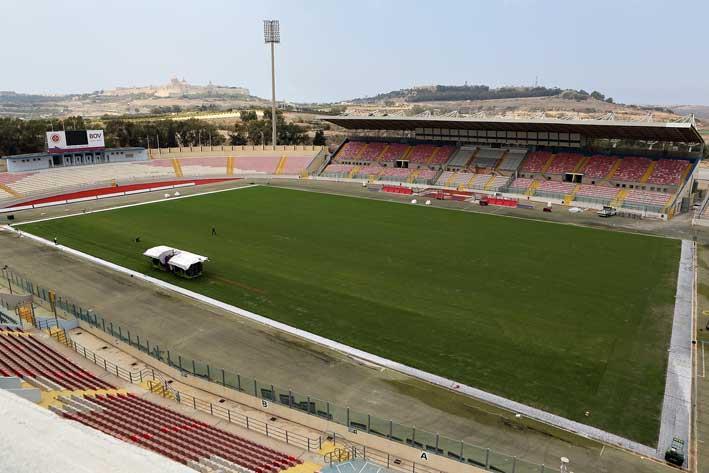
“There are other companies such as Sportradar that offer these services but my only concern is to get correct and solid information with which to nail the culprits. I do not care where it comes from as long as it is solid information.”
Finally he was asked about any head-to-head meetings with people involved in such crime. He replied, with a grin: “Let me tell you one thing: if these people went to Hollywood they would win an Oscar, hands down! All of them – player, official or whatever. But I have met people, bullies – call them what you like – who break down in front of me and cry like babies. Fortunately, these days I can talk to anybody and maybe they show respect. I speak frankly with these people who are branded as “tough guys” and still – strangely enough – learn from them. In my job I come across loads of informers and if I had to listen and believe everything I would go nuts. It’s a question of balance and experience to sort out what is probable and what is not. Today, after more than five years’ experience, I know everything about what is right and what is wrong and the competition that exists in the underworld.
“Football is healthy: let’s keep it that way. Let us protect the game together – and here I’m talking to everyone involved with football who has the responsibility of being part of our mission against the criminals in our environment.”